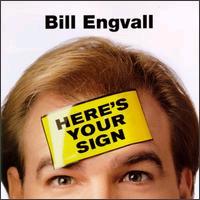Day 21: A song you like with a person’s name in the title
In a 1969 interview, Fogerty said that he wrote it in the two days after he was discharged from the National Guard. In the liner notes for the 2008 expanded reissue of Bayou Country, Joel Selvin explained that the songs for the album started when Fogerty was in the National Guard, that the riffs for "Proud Mary", "Born on the Bayou", and "Keep on Chooglin'" were conceived by Fogerty at a concert in the Avalon Ballroom, and "Proud Mary" was arranged from parts of different songs, one of which was about a washerwoman named Mary. The line "Left a good job in the city" was written following Fogerty's discharge from the National Guard, and the line "rollin' on the river" was from a movie by Will Rogers.
"Proud Mary's" singer, a low-wage earner, leaves what he considers a "good job," which he might define as steady work, even though for long hours under a dictatorial boss. He decides to follow his impulse and imagination and hitches a ride on a riverboat queen, bidding farewell to the city. Only when the boat pulls out does he see the "good side of the city"—which, for him, is one in the distance, far removed from his life. Down by the river and on the boat, the singer finds protection from "the man" and salvation from his working-class pains in the nurturing spirit and generosity of simple people who "are happy to give" even "if you have no money." The river in Fogerty and traditionally in literature and song is a place holding biblical and epical implications. ... Indeed, the river in "Proud Mary" offers not only escape but also rebirth to the singer.
The song is a seamless mix of black and white roots music ..."Proud Mary" is, of course, a steamboat traveling up and down the river. Fogerty's lyric sketches out a vivid picture of the protagonist finding a comfortable niche in a community of outsiders ... The story connects back to Mark Twain; it brings the myth [of "the rambling man and life along the Mississippi"] into the sixties.
In the Macintosh application "GarageBand", Fogerty explained that he liked Beethoven's Fifth Symphony[clarification needed] and wanted to open a song with a similar intro (descending by a third), implying the way "Proud Mary" opens with the repeated C chord to A chord. Fogerty wanted to evoke male gospel harmonies, as exemplified by groups he was familiar with such as the Swan Silvertones, the Sensational Nightingales, and the Five Blind Boys of Mississippi; especially on the line, "Rollin', rollin', rollin' on the river"; and in the guitar solo he did his "best [imitation of] Steve Cropper." The basic track for "Proud Mary", as with the other songs on the album, was recorded by John Fogerty (lead guitar), Tom Fogerty (rhythm guitar), Stu Cook (bass), and Doug Clifford (drums) at RCA Studios in Hollywood, California, with John overdubbing instruments and all the vocals later.
Billboard described "Proud Mary" as a "driving blues item with a strong beat."Cash Box described it as "a steady moving mid-speed chunk of funk and rhythm that will make itself felt in both pop and underground spots." Cash Box ranked it as the No. 55 single of 1969.
*(borrowed from Wikipedia)




